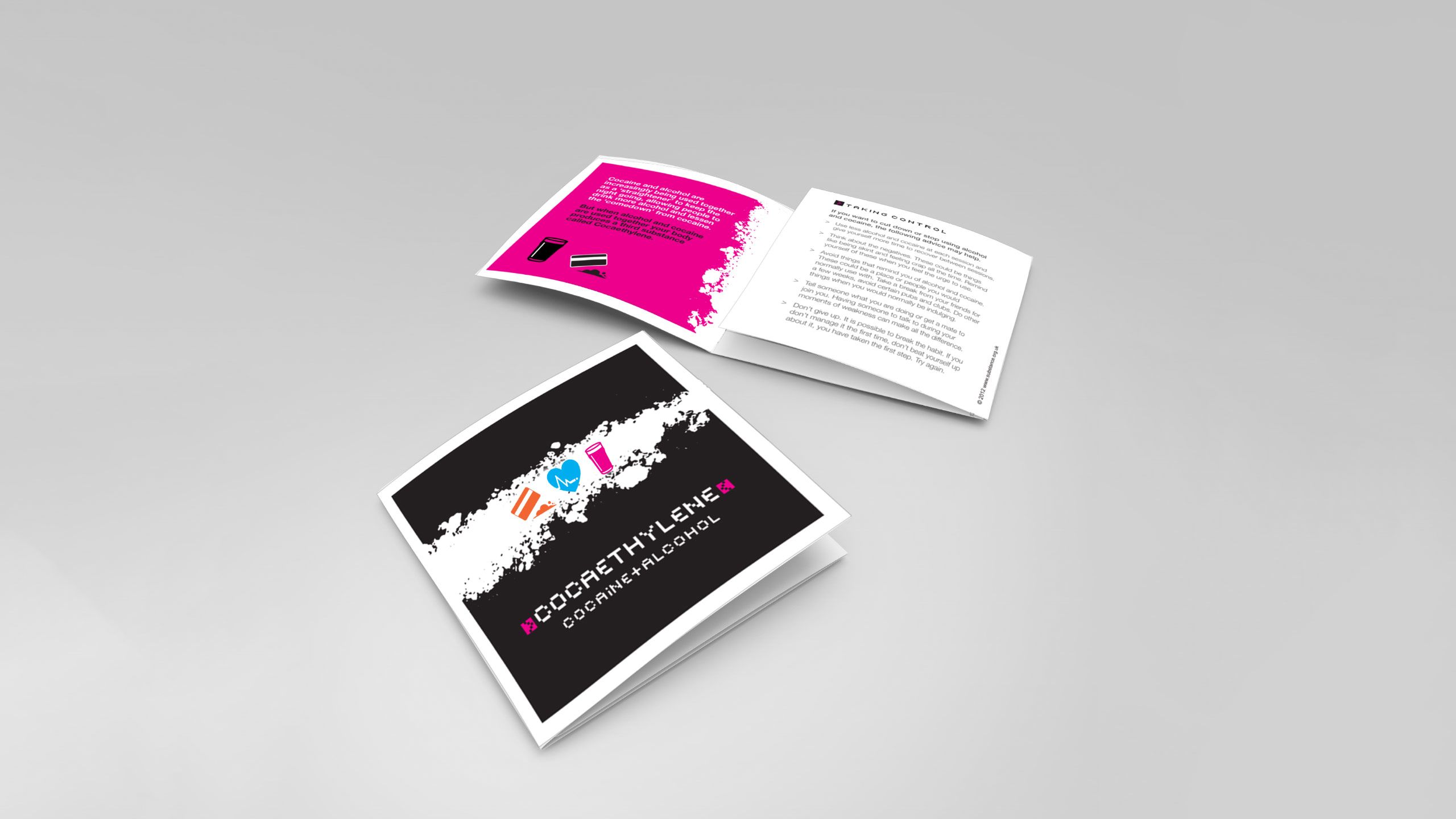Cocaine and alcohol are increasingly being used together as a ‘straightener’ to keep the night going, allowing people to drink more alcohol and lessen the ‘comedown’ from cocaine.
But when alcohol and cocaine are used together your body produces a third substance called cocaethylene.
The information in this booklet will help you minimise the risks caused by cocaethylene.
For some people, cocaethylene can increase the duration and the intensity of the ‘high’ caused by cocaine, but the downside, (yes, there always is one!) is that cocaethylene is also a toxic substance which can cause short-and long-term, physical and mental health problems for some people.
Cocaethylene can force your heart rate and blood pressure to higher levels than cocaine alone would. Even for perfectly healthy people, this can increase the chance of seizures, heart attacks and strokes. For anyone with an underlying heart condition, this is extremely risky.
Cocaethylene increases the toxicity of cocaine in your body and slows down the rate at which your liver processes both cocaine and alcohol. This puts a greater strain on the liver and, over time, can cause serious damage.
The combination of the disinhibiting effect of alcohol and confidence inducing cocaine with the addition of cocaethylene leads to a heightened possibility of impulsive or reckless behaviour and even violence.
The combined effect of cocaine and alcohol can ruin sexual performance. It can make you feel horny but makes it more difficult for men to get hard and women to get lubricated. Both men and women will find it difficult to orgasm. As trying to climax can take longer, this can damage the penis, vagina and anus, leading to increased risk of sexually transmitted infections (STIs).
Always use a condom and plenty of water-based lubricant like KY Jelly. Using a sexual stimulant like Viagra alongside cocaine and alcohol can put a massive strain on the heart. Not recommended!
There is nothing to suggest cocaethylene poses an increased risk of dependence that using either of the two substances on their own would. But you can become so used to using both together, that using one can start a craving for the other. As a result, a dependency for both can develop.
Some of the warning signs are:
If you want to cut down or stop using alcohol and cocaine, the following advice may help.
